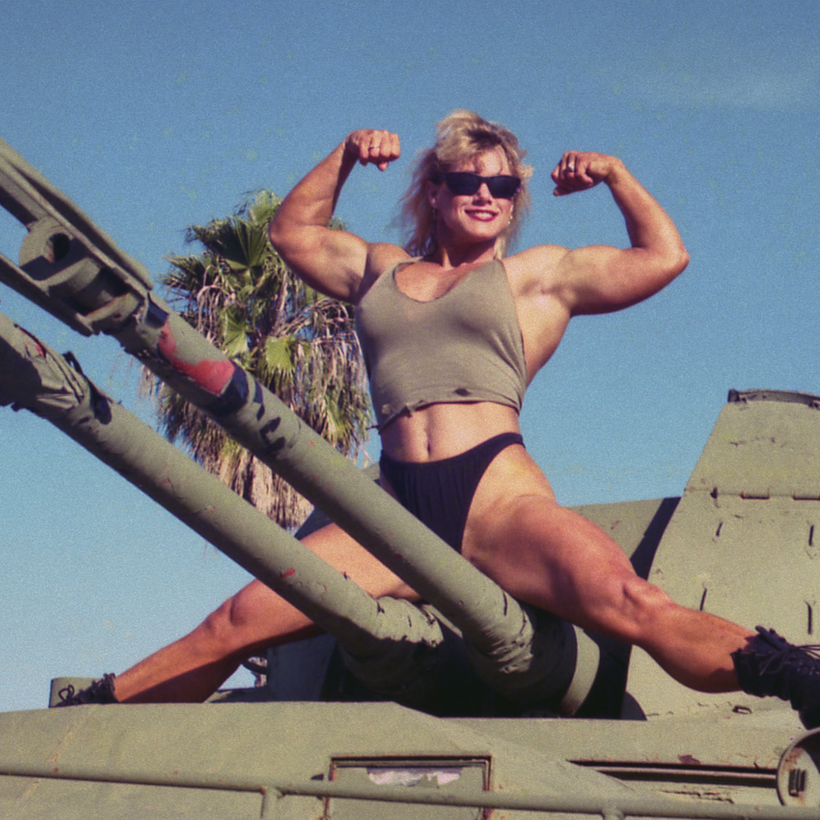“In general, I’m drawn to biographies of complicated, successful people,” says the director Nanette Burstein, whose past projects include the Oscar-nominated film On the Ropes (1999), which followed three talented young boxers with difficult upbringings, and The Kid Stays in the Picture (2002), a screen adaptation of the enigmatic Hollywood producer Robert Evans’s autobiography. “Fascinating but flawed people.”
Now she’s specifically compelled by “very complicated women,” Burstein says—“women who have excelled at certain things, whether it’s in a sport, politics, or business, but don’t fit into a mold. They’ve been both rewarded and vilified by our society.”
Burstein’s last project, the 2020 docuseries Hillary, weaved together the narrative of Hillary Clinton’s 2016 presidential campaign and her biography. Her newest subject, Sally McNeil, fits the description, too.

On Valentine’s Day 1995, McNeil, a bodybuilder, shot her husband, Ray, twice, ultimately killing him in their home in California. McNeil was charged with second-degree murder and spent the following 26 years in prison. She wasn’t able to raise her two young children.
Ray was also a bodybuilder, and the murder quickly became the sport’s most notorious crime. The media sensationalized the saga and dubbed McNeil “Killer Sally.”
In Burstein’s new three-part docuseries, which takes its title from McNeil’s nickname, the filmmaker explores a previously overlooked side of the story. McNeil and her kids were being abused by Ray. The night of the murder, Ray had choked McNeil until she thought she was going to die. When she managed to get away, she ran for her shotgun.
“It’s the cliché metaphor of the peeling of the onion,” Burstein says of the series’s structure. “It’s about the layers of Sally’s character and her relationship.” She wants viewers to experience the complicated, slowly unfolding details of the murder just as Burstein did while researching the film.
“In general, I’m drawn to biographies of complicated, successful people. Fascinating but flawed people.”
As the series goes on, more complications emerge. “You find out later that she’s not the perfect victim, that she has a propensity [for] violence, that she is jealous,” Burstein says, careful to clarify that there is no such thing as a perfect victim.

Through interviews with McNeil, her two now grown children, family friends, and lawyers, a messy, heartbreaking story of a flawed justice system and the cyclical nature of violence surfaces. The series questions whether McNeil’s domestic-violence case and self-defense claims would be handled differently today.
McNeil was denied parole several times and was only released from prison in 2020 because of the pandemic. By then, her children had fallen into a similar pattern—her daughter had been a victim of abuse, and her son an abuser.
Footage from the police station the night of the murder is the series’s cri de coeur. “It made me cry hysterically,” Burstein says. Two young children in pajamas grasp teddy bears as their mother tells them that she has been arrested and that they are going to foster care. “They learn that they’ve lost both their parents in one night, even though one of them was their tormentor,” she says. “That haunts me.”
Killer Sally is available for streaming on Netflix
Clara Molot is an Associate Editor for AIR MAIL

